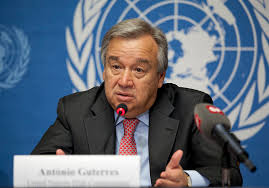Portugal Reacts to Former Prime Minister’s Nomination as New UN Secretary General
The United Nations Security Council nominated former Portuguese Prime Minister António Guterres as the new Secretary General of the organization on October 6. Their decision will now go to the 193-member General Assembly for approval.

Guterres, 67, led Portugal’s Socialist Party (PS) for nearly twenty years, during which time he enacted the country’s highly successful law decriminalizing all drugs. In fact, studies by the European Monitoring Center for Drugs and Drug Addiction have shown that the country’s rate of deaths caused by overdose per year is only three people per year, compared to the EU average of 17.3 per year. He accepted the role of High Commissioner of the UN’s Refugee Agency and occupied the post from June 2005 until December 2015. Guterres has a positive reputation among world leaders and Portuguese citizens alike and has received high reviews in light of his recent election as Secretary General.
“It is a great day for Portugal,” said Portuguese Minister of Foreign Affairs Augusto Santos in an interview with Diário de Notícias on October 6. “This is a victory for Portugal,” he continued, because of the “show of unity for our candidate, which demonstrates the value of Portugal to the world.”
Portugal’s current president, Marcelo Rebelo de Sousa, also of the Socialist Party, echoed these statements on the same day, saying that the election is “very good” and “a historic moment” for Portugal.
Portuguese foreign policy advisor Alexandra Carreira has praised Guterres’ record as High Commissioner of the Refugee Agency, citing the internal reforms he implemented at the agency’s headquarters in Vienna. In particular, Guterres has been commended for cutting expenditure costs by almost 7.1 percent and for reducing his personal staff by a fifth.
Guterres accepted the endorsement on October 6, telling crowds in his hometown of Lisbon that he is determined to serve the “most vulnerable” people of the world, the victims of the Syrian refugee crisis.
